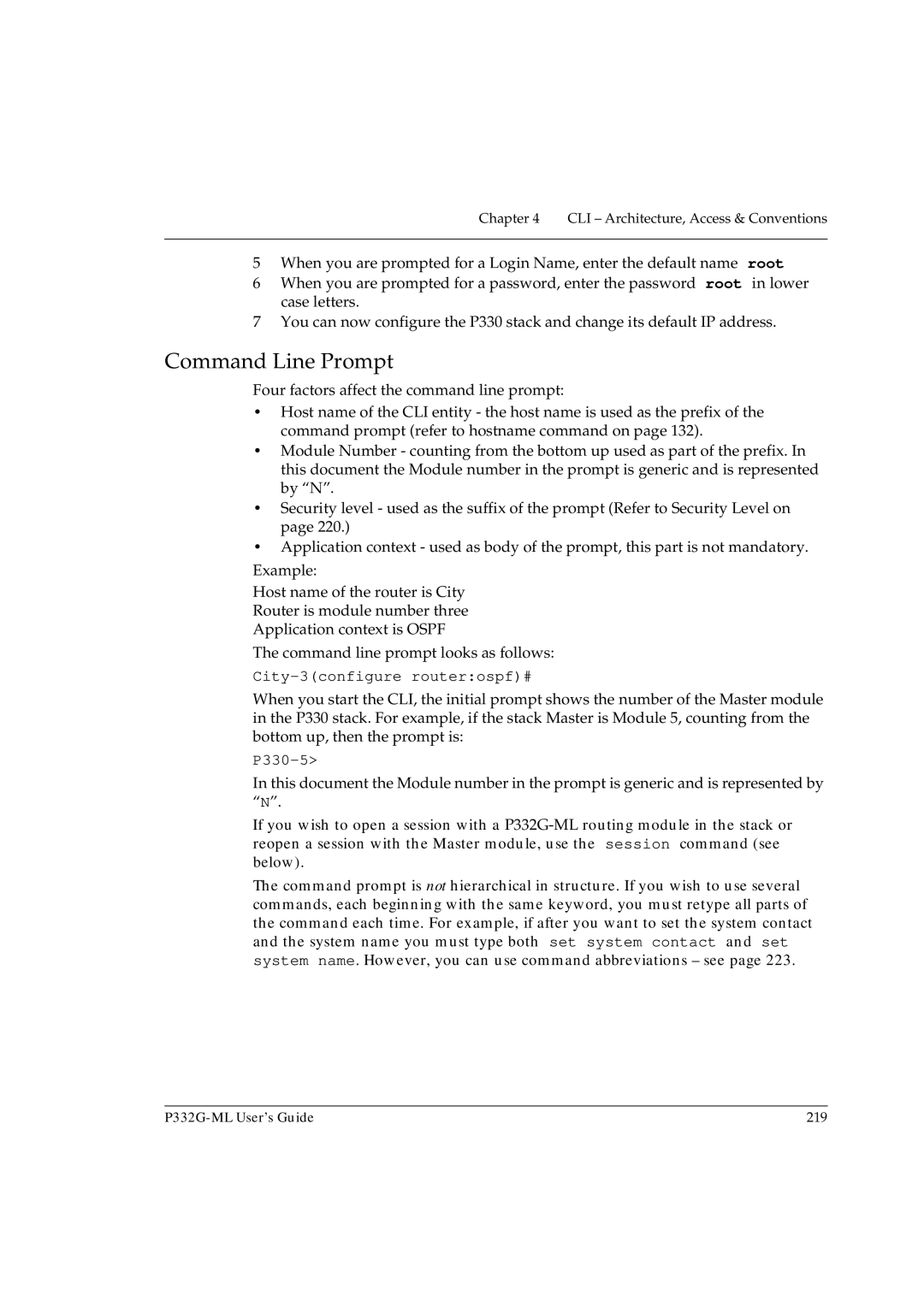
Chapter 4 CLI – Architecture, Access & Conventions
5When you are prompted for a Login Name, enter the default name root
6When you are prompted for a password, enter the password root in lower case letters.
7You can now configure the P330 stack and change its default IP address.
Command Line Prompt
Four factors affect the command line prompt:
•Host name of the CLI entity - the host name is used as the prefix of the command prompt (refer to hostname command on page 132).
•Module Number - counting from the bottom up used as part of the prefix. In this document the Module number in the prompt is generic and is represented by “N”.
•Security level - used as the suffix of the prompt (Refer to Security Level on page 220.)
•Application context - used as body of the prompt, this part is not mandatory. Example:
Host name of the router is City
Router is module number three
Application context is OSPF
The command line prompt looks as follows:
City-3(configure router:ospf)#
When you start the CLI, the initial prompt shows the number of the Master module in the P330 stack. For example, if the stack Master is Module 5, counting from the bottom up, then the prompt is:
P330-5>
In this document the Module number in the prompt is generic and is represented by “N”.
If you wish to open a session with a
The command prompt is not hierarchical in structure. If you wish to use several commands, each beginning with the same keyword, you must retype all parts of the command each time. For example, if after you want to set the system contact and the system name you must type both set system contact and set system name. However, you can use command abbreviations – see page 223.
219 |
